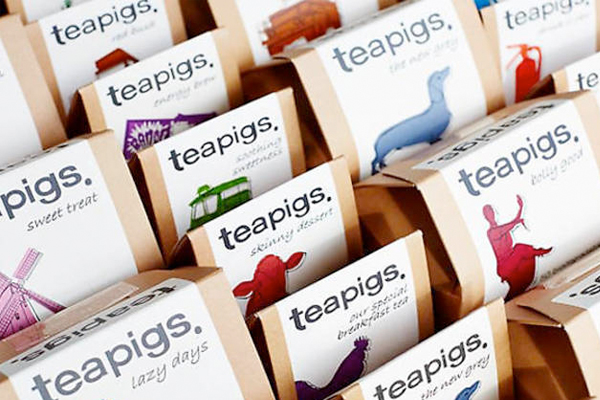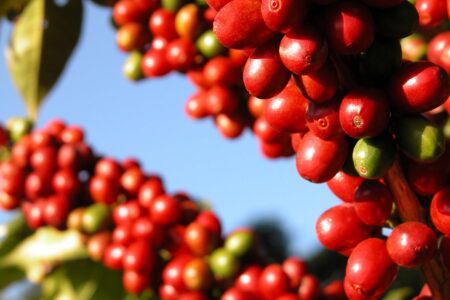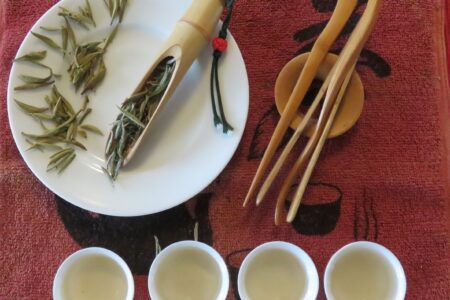Teapigs Is One Steep Ahead of the Crowd

While aiming to become the world’s greenest tea company, Teapigs is also on a mission to improve the tea experience for consumers around the world by focusing on simplicity, sustainability and ethical sourcing.
By Sharanjit Aujla
As the demand for cold brews, lattes and bubble teas increases, it is safe to say that the world is in the midst of something of a tea revolution. “Tea is not just tea anymore,” said Louise Cheadle, tea taster and co-founder of Teapigs. “The average tea drinker now wants more than a ‘milk with two sugars’ kind of experience – they know more about tea, they expect better quality and are happy to pay a bit more for it.” And that’s where Teapigs steps in.
The Tata Global Beverages-owned tea brand was founded in 2006 by former Tetley employees Cheadle and Nick Kilby. As a tea taster for over 15 years, Cheadle had travelled the world sourcing tea. And while she discovered “all sorts of wonderful teas” in different parts of the world, she returned home only to realise how unvarying and static the UK market was. “Tea was predominantly black tea in a dusty paper bag. To experience quality tea, you’d have to go to a fancy London food hall or hotel for afternoon tea.” She added that herbal infusions were in limited availability in the mainstream market, not that great tasting and consequently not that popular.
“We were a nation of tea drinkers who had gotten stuck in a very average tea rut,” Cheadle lamented. “Nick and I wanted to change all that. So, we started Teapigs with a mission to make real, quality tea accessible to everyone.” The company now operates from two offices, one in Brentford, England and the other in Brooklyn, New York.
Simplicity is Key
The unique brand name was concocted to leave an imprint in consumers’ minds whilst reflecting the founders’ greed for great tea as self-proclaimed ‘tea pigs.’ However, the company’s propensity to think outside the box didn’t stop there. The decision to adopt the term ‘tea temples’ in place of the traditional terms of ‘pyramid tea bags’ or ‘tea sachets’ also reflects Teapigs’ eccentricity as a brand. Cheadle noted, “There was a phrase we’d heard around the time we started Teapigs that ‘a tea worthy of worship goes in a tea temple’ and from there our tea temple was born. The other option was a pouch…but that just sounds odd!”
Simplicity is key for Teapigs. With a current portfolio of less than 50 different tea varieties, the aim is to avoid overwhelming the consumer with too many choices, Cheadle said. “With our tea knowledge we have carefully selected what we believe is a cross-section of the finest teas to make the tea drinker’s selection that much easier.” Furthermore, the brand currently operates in 35 countries with its biggest markets currently listed as the United States and China.
Consumers’ Shifting Preferences
The company owes much of its success to the recent shift in mainstream consumption habits. “There is a global trend towards drinking better-quality tea, but different countries are at various stages on that journey,” Cheadle affirmed. There has a been a particular change in consumers’ beverage preferences in the company’s country of origin, the United Kingdom. British consumer preferences now match the Teapigs original ethos more closely than they did ten years ago, with tea drinkers now demanding better-quality teas.
There is also a growing interest in brews that offer health benefits. “Demand for healthy green and herbal teas is growing [in the UK]. All our teas are healthy, but we’ve noticed that more and more people are asking specifically about the benefits,” Cheadle revealed. As a result, the company launched a range of feel-good teas in February 2017 featuring ingredients such as ginger, beetroot, apple and coconut. “These are not ‘healthy teas’ that are consumed whilst holding your nose — we use real, top-quality ingredients. These teas both taste and do good.”
However, in terms of other leading markets such as China, for example, loose-leaf green teas still dominate consumers’ preferences. The functional teas, which offer specific health benefits, and are favoured by the Brits, are much more of a slow burner amongst Chinese tea drinkers.
Plastic-Free Certification
At the start of this year, the UK Tea and Infusions Association announced that the UK consumes 60.2 billion cups of tea every year, 96 percent of which are brewed using a tea bag. It was also revealed that most popular British tea-bag brands use a sealing plastic called polypropylene to fasten the tea bags and retain their shape. However, Teapigs has been recognised as one of the few tea brands that manufactures plastic-free biodegradable tea bags.
Teapigs was also the first tea brand to be awarded with the Plastic Free Trust Mark by A Plastic Planet in May. Cheadle said, “Our tea temples and the string attached are made from corn starch, a natural carbohydrate extracted from corn. The label on the end of the string is made from simple, old-fashioned paper. Even the ink on the label is vegetable-based, and everything is sealed with heat – so no glue! As a result, our tea temples are fully plastic-free.” Designed to be featured on the front of the packs, the company hopes that the Trust Mark will encourage consumers to make well-informed plastic-free choices.
Teapigs’ packaging is also made from FSC (Forest Stewardship Council) certified paper board. This assures consumers that the forests from which the wood is originally sourced are sustainably managed. According to Cheadle, the cartons are also reusable, recyclable and biodegradable. And the ink used on the cartons is vegetable-based. “We use clear inner bags inside our cartons to keep the tea temples fresh and have recently invested in switching over to a material called Natureflex. These bags are fully compostable and are made from renewable wood pulp which is great. As for the other products in the range, our metal tins of tea are made from tin plate and aluminium. They are reusable and can be recycled in your home recycling bin.”
And while the subject of plastic-free packaging for food and beverages may not be a pressing priority on a global scale as of right now, Cheadle noted that the strong British interest in the subject matter can be attributed largely to Sir David Attenborough. “We’ve really got to thank the great Sir David Attenborough and the recent Blue Planet programme for bringing this topic even further into the public eye. He’s a real national treasure!”
Ethical Sourcing
As further evidence of its worldwide presence, Teapigs sources its teas and herbal infusions from a variety of countries including Rwanda, Taiwan, China, and India. The brand maintains its commitment towards ethical sourcing and as such, Teapigs has been a member of The Ethical Tea Partnership since July 2017. The not-for-profit organisation works to improve tea sustainability, the livelihoods of smallholder farmers and tea workers, as well as the environment in which the tea is produced.
Moreover, Teapigs’ everyday brew blend holds a Rainforest Alliance certification. “We’re working with the Rainforest Alliance to get our black tea estates certified so you can see the little green frog on loads more of our packs,” Cheadle shared. “We’re also members of the Sustainable Restaurant Association and we’re proud to be an accredited Living Wage Employer.”
Teapigs also donates a percentage of its everyday brew sales to The Point Foundation, a charity that operates in the communities where the brand sources its tea. “The Point Foundation runs a disability programme in collaboration with the Gallagher Trust where they manage houses that provide specialist care and accommodation for disabled children and young adults. Teapigs fully funds one of the houses – Teapigs House – home to seven people with disabilities. Our donations also go towards the upkeep of other houses,” Cheadle said.
It would appear that the brand has plenty of innovations up its sleeve, including new flavours, new formats and new collaborations. Although Cheadle was tight lipped regarding specific details, she was sure to mention that consumers should keep an eye on Teapigs’ packaging formats in the near future.
As the trends of green teas and healthy beverages continue to gain momentum across the globe, Teapigs will definitely benefit from the current ‘tea revolution.’ And the company’s dream of becoming the “number one gourmet tea company, not just in the UK, but the world over,” may just become a reality, sooner rather than later.
Sharanjit Aujla is the digital editor at Bell Publishing. She may be reached at: [email protected].



